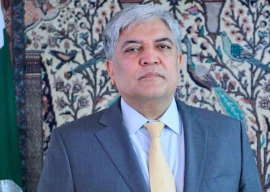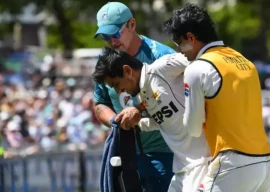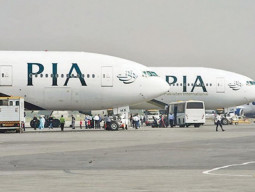
He was of the opinion that countries like Pakistan need to document their economy at multiple levels and black holes need to be addressed as there is no documentation for money used in charities or donations.
He informed the audience that a conference would be held on Implementation and Prosecution of Anti-Money Laundering Act 2010 in the second week of January with the collaboration of PILDAT.
According to the Anti-Money Laundering Act, three government agencies deal with money laundering cases. While FIA deals with cases related to terrorism, National Accountability Bureau (NAB) handles cases relating to financial crimes and Anti-Narcotics Force has purview to deal with narcotics-related cases. The unit refers cases of money-laundering to the agency concerned (NAB) to investigate and initiate legal action against the accused.
The incumbent Federal Investigation Agency (FIA) Director General Waseem Ahmed said in an address to the Karachi Stock Exchange last week that from now onwards the FIA would handle all money-laundering cases.
It has been reported that the government decided to allow only the FIA to deal with cases of money-laundering as an attempt to protect the ruling elite whose cases are being handled by NAB.
Syed Mansoor Ali, Senior Joint Director, Financial Monitoring Unit, State Bank of Pakistan, gave his presentation on ‘Money Laundering and Terrorism Financing Domestic and International Initiatives’. He said Pakistan does not have adequate laws to check the flow of cash money at airports and the government is considering reviewing this part of the existing Act.
President Research Society of International Law Ahmer Bilal Sufi was of the view that this conference would serve to further launch and strengthen the anti-money laundering campaign as the law is good but lacks implementation.
Khalid Masood, former Chairman, Council of Islamic Ideology presented the ideological aspect of money laundering and said that the terms used in Islam for money laundering are ‘to abuse’ or ‘to trespass. He said that ideological differences create a hurdle in effective implementation of anti-money laundering laws.
Financial consultant Ayla Majid was of the view that a big threat that the economy faces is in terms of not documenting legitimate money transfers which has a negative impact on fiscal and monetary policy.
National Assembly Standing Committee on Economic Affairs and Statistics Chairman Malik Azmat Khan stressed the need for capacity building inside and outside the Parliament.
PILDAT Executive Director Ahmed Bilal Mehboob said that money laundering itself is a crime and it does not have to be related to terrorism to be a crime, though the nexus between the two makes it a volatile combination.
As a major victim of terrorist activities and being next door to Afghanistan, which is the world’s greatest producer of heroin, Pakistan needs to be vigilant regarding the twin menace of money laundering and terrorist financing. As technology develops further and global conditions change, new steps may need to be taken, including updating the relevant laws to keep pace with the international community and to meet the new challenges. Pakistan’s Parliament, civil society and media should exercise their oversight functions to help the government in meeting the objectives of Anti-Money Laundering laws and institutions established to counter terrorist financing.
Published in The Express Tribune, December 15th, 2010.











1737185197-0/Express-Tribune-(2)1737185197-0-270x192.webp)
1737188551-0/Untitled-design-(97)1737188551-0-270x192.webp)



1737114296-0/Express-Tribune---News-Desk-(4)1737114296-0-270x192.webp)






COMMENTS
Comments are moderated and generally will be posted if they are on-topic and not abusive.
For more information, please see our Comments FAQ